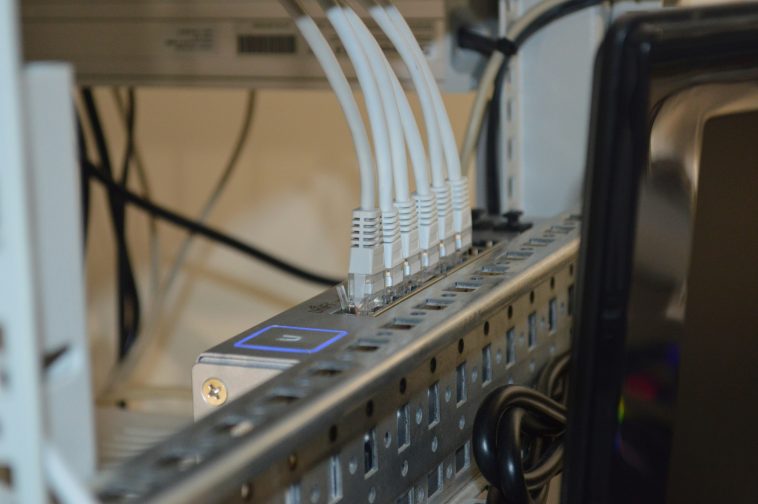Kefilwe, a 25-year-old unemployed marketing graduate, can access one hour of internet at Unique Solutions, an internet café in Monarch township in Francistown, Botswana’s second-largest city, for 15 pulas ($1). She is currently interested in applying for Chema-Chema, a government funding programme totaling 500 million pulas ($37 million) aimed at aspiring entrepreneurs.
Despite owning a smartphone, Kefilwe can only afford a mobile data package from Orange that allows access to Facebook, TikTok, X, and WhatsApp for 60 pulas ($4.40) per month. Due to financial constraints, accessing the Chema-Chema website through the internet café remains her most affordable option, as she cannot afford data bundles that provide broader internet access beyond social media platforms.
“I can’t afford those expensive capped data bundles,” she explains at the internet café. “Here, I can browse freely without worrying about data limits,” she adds. “And if I need more time, I can ask the owner for extra minutes.”
Kefilwe represents many young people in the country who still depend on internet cafés to go online. Despite a commendable 74% internet penetration rate, the cost of internet access remains among the highest in Africa, making internet cafés a practical choice.
“We serve around 60 customers daily who come in for social media, job applications, school projects, and services like document printing and scanning,” explained Tshepo Kelentse, founder of Unique Solutions.
He established the internet café in 2021 upon recognizing the community’s pressing need for reliable internet services in Monarch township. Since then, he has expanded with another location and aims to open two more within the next three years to meet increasing demand.
While acknowledging the café’s role in enhancing internet connectivity nationwide, he highlights the challenges of managing such a business. Originally envisioned as self-service, he finds himself assisting nearly every customer in connecting, particularly challenging during peak times.
Kelentse also emphasizes the financial strains of operating an internet café, including rent, internet costs, and machine maintenance. While some weeks yield over 1,000 pulas ($74), profitable periods are sporadic, especially during school holidays when students, a key clientele, are absent.
His café is equipped with only three computers, so to maximize their use, he encourages customers who visit for social media browsing to connect to the internet on their phones instead. “Lots of young people come here for ‘Fezana’ (slang for Facebook) and TikTok, so I simply provide them with the WiFi password and let them browse at the same rate as those using the PCs,” he explains.
The high cost of the internet not only affects the customers of internet cafés but also the cafés themselves. Tshepo Monageng launched his café in 2017 after spotting a market gap for internet services in low-income townships in Francistown. To offer internet access, he invested in an Orange router that advertises speeds of up to 10MBps for 550 pulas ($41) per month.
Monageng often struggles to achieve even 5Mbps of speed during peak business hours, despite the fact that data indicates an internet café requires at least 25Mbps to efficiently service its customers. “When we have a lot of customers, those who come for connectivity end up leaving due to the slow internet,” Monageng shared with TechCabal.
To mitigate the impact of unreliable connectivity on his business, Monageng offers additional services such as CV drafting, printing, laminating, and emailing. These auxiliary services have become popular among his clientele, many of whom are not sufficiently computer literate to perform tasks like sending emails. Moreover, most households lack their own printing or laminating equipment, making Monageng’s internet café an ideal service provider for these needs.
Despite the rise in smartphone usage and data packages, Monageng has seen an increase in foot traffic to his café over the seven years he has been in business. He attributes this growth to the fact that most internet packages offered by network operators do not cater to low-income customers.
Although he is pleased with the growth, he aims to attract more enterprise and government clients, which would significantly boost his business operations. “There are numerous businesses around, but they opt to go into the town centre for the same services we offer at a lower price.” To promote his business and attract these potential clients, he relies on word-of-mouth marketing, social media promotion, and listing on Google Maps.
In the next five years, he aspires to open more branches, acquire larger printers and laminating machines, and expand his product offerings to include additional services such as branding.
Other cafés have even bigger plans.
Take Robert Golebetswe, for example, who plans to introduce a subscription service to attract clients to become recurring customers. Having run his internet café since 2017, and recognizing the value of his services, he believes a subscription service would be an essential addition. How exactly he plans to implement it is still unclear, but he dreams nonetheless.
Every day, I find myself having to urge customers to leave so I can close the shop. Now, imagine if I could offer them the same rates while they’re at home,” Golebeletswe remarks. He acknowledges that it would be a challenging service to implement, but he is determined to make it happen.
Golebeletswe is convinced that both the private and public sectors need to support his business to ensure that internet cafés continue to provide crucial internet access, particularly in low-income neighborhoods.
From the private sector, he encourages businesses to utilize local cafés instead of traveling into town for services that are available nearby. As for the government, he believes that access to funding for his expansion plans, including the subscription service, would greatly help.
“Cafés serve as more than just businesses; they act as community hubs that keep our people connected,” Golebeletswe says.
Shortly after Tshepo helped her log into the Chema-Chema application portal, Kefilwe called him again to assist with navigating the portal. Though it was an inconvenience, Tshepo seemed accustomed to it and content nonetheless. He apologized to this reporter for the interruption in our conversation.
“Eish, go a bo go simologile,” he remarks as he rises from his seat to assist the customer, pro bono. Loosely translated, he is saying, “Duty calls!”
 We just launched our WhatsApp channel. Want to get the latest news from the Tech in Africa?
We just launched our WhatsApp channel. Want to get the latest news from the Tech in Africa?


